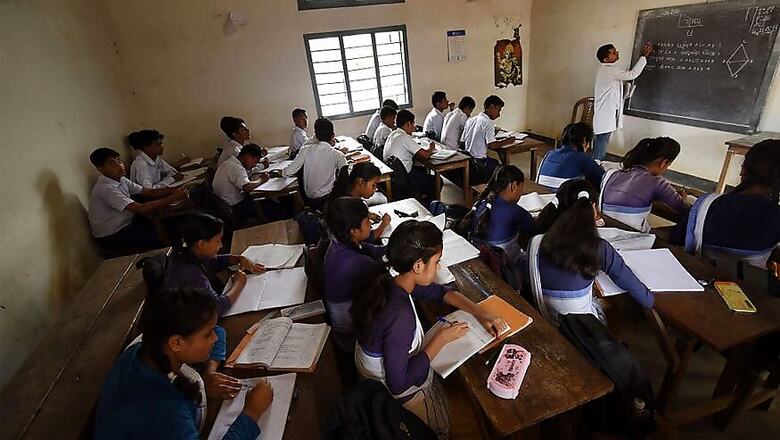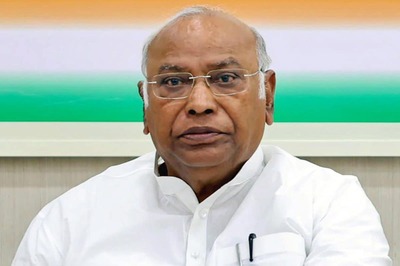
views
New Delhi: At a time when the government has argued that concept of ‘marital rape’ does not exist and the Supreme Court has ruled that girls between the ages of 15 and 17 cannot claim to be victims of rape if the accused is their husband, a member of National Commission for Protection of Child Rights has said that ‘consensual sex between 16 or 17 years olds should not be an offence’.
Calling for amendments to the Protection of Children from Sexual Offences Act (POCSO Act) 2012, Priyank Kanoongo, Member — RTE and Education, NCPCR, told News18 that this Act was made “without consulting members of civil society’ and most of the time victims are the ones who battle with cases lodged by either angry parents or relatives.
“Visit an observation home and see that boys who are aged between 15 and 18 are locked up and are charged under POCSO Act. In most cases, the boy and the girl were friends… I met a boy in Meerut where he used to roam around with his girlfriend on the bike and when her family members saw him, they charged him under POCSO. These kind of things are happening and it is a fact that if there is a 17 years old boy and a 16 years old girl who establish sexual relations consensually, then whether to make it an offence or not should be reviewed. Hence, POCSO Act needs amendment,” Kanoongo said.
Regarding Uniform Civil Code, Kanoongo said that NCPCR has recently submitted its recommendation to the Law Commission stating that education must be included under the ambit of UCC and that “elementary education has to be uniform across India, apart from education imparted by Madrasas or Vedic schools.”
“We have urged the Law Commission that education be made a part of the Uniform Civil Code. Article 21A of the constitution says that every child must get fundamental right to education. The minority educational institutions are outside the purview of RTE Act. In 2002, there was the 86th amendment to the Constitution and education was made a fundamental right, especially elementary education. To implement this amendment, RTE Act was passed in 2009 but in 2012, the minority segment became outside the purview of the RTE Act. Now the children suffer and the fundamental rights are denied. RTE Act cannot be outside the purview of the Constitution. If it becomes a reality, then it will have effect on Madrasas, Vedic schools, etc because elementary education is the right of every child. We have to find out ways so that religious education may continue, but uniform education will be a must. I am sure this will soon be extended to the age of 18 years,” Kanoongo said.
This statement comes soon after Yogi Adityanath-led Uttar Pradesh government has stopped the grant to 46 madrasas, which were not functioning as per the standards set by the government.
On the probability of UCC, Kanoongo said “I believe that people must have their religious freedom but the rights which the Constitution has guaranteed to individuals must be availed uniformly by one and all.”
Apart from including education under the ambit of UCC, NCPCR member also said that child marriages were a reality in India. He said, “If half of the population believes in Shariat, then how can it be done away with?”
This observation comes soon after a conflict between POCSO and the Indian Penal Code (IPC) was revealed when the courts stated that when a man has sex with his wife who is below 18, then it is not rape. However, an NGO submitted that Section 42A of POCSO Act, overrode other Sections of the IPC. The court reiterated its stand, refusing to consider sexual intercourse between a woman who is 15-17 years old and her husband, with or without her consent, as rape.
Kanoongo said “neither will people who follow Shariat stop this practice, nor can you force the primitive tribal people to change their customs.”
“There is no question of marital rape. If half of the population believes in Shariat, then how can it be done away with? The marriages which occur in accordance with Muslim Personal Law generally take place with women who are in their teens. The others are primitive tribes who resort to customary practices and are beyond the legal purview. How will you stop them? The tribal people from the Santhal district also resort to such marriages like Ghotol in Odisha and Jharkhand. Here the boys and girls aged between 16 and 17 like each and other and spend time in the jungle before tying the knot. So the government is correct in saying that it is a reality and you cannot stop tribal customary practices. These practices can be stopped only by awareness,” said Kanoongo.




















Comments
0 comment